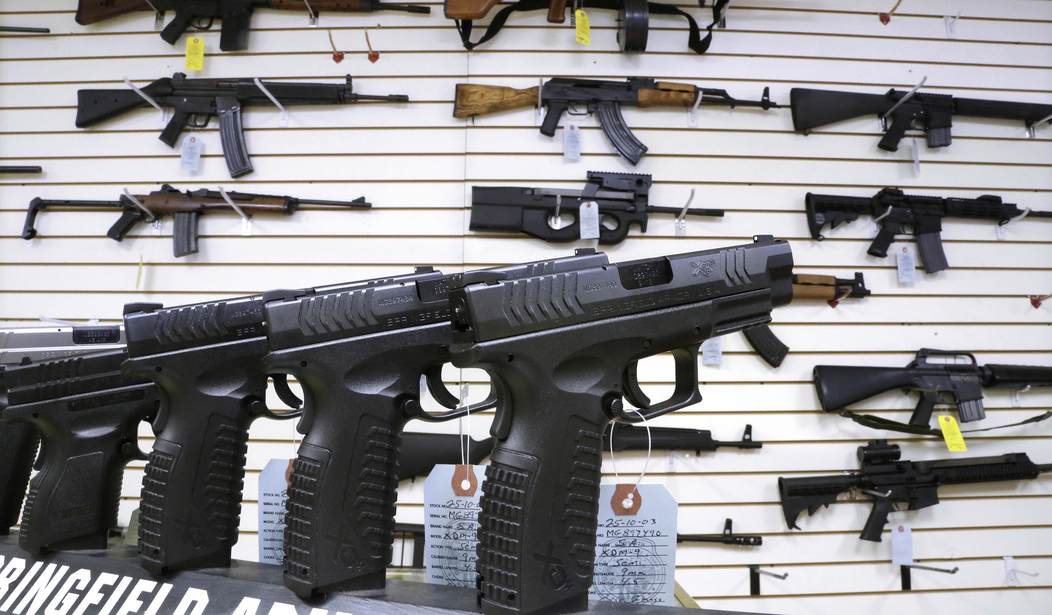In 2002, Steven Spielberg's "Minority Report" depicted a dystopian future where individuals could be arrested for crimes they hadn't yet committed. Two decades later, as lawmakers push for so-called "red flag" laws, allowing the government to confiscate firearms based on perceived threats, the film's warnings feel increasingly relevant.
At the heart of the American justice system lies the principle of due process—a safeguard ensuring that no person is deprived of life, liberty, or property without appropriate legal procedures. Red flag laws threaten to circumvent these fundamental rights. In many instances, firearms can be confiscated based solely on accusations of potential threats, often without the gun owner's prior knowledge or immediate opportunity to contest the allegations in court.
This preemptive approach, where individuals are punished based on what they might do rather than what they have done, sets a dangerous precedent. It represents a dramatic shift from "innocent until proven guilty" to "guilty until proven innocent"—a change that should alarm all Americans, particularly the millions of law-abiding gun owners who have chosen to be their family's first line of defense.
The debate surrounding red flag laws has only intensified in recent days with the elevation of Vice President Kamala Harris to the presumptive Democratic nominee for president and her selection of Minnesota Governor Tim Walz as her running mate. Both have been strong proponents of these laws, ignoring concerns expressed by gun owners and the Second Amendment's freedoms guaranteed in the U.S. Constitution.
Recommended
Currently, more than 20 states have red flag laws on the books, and the Biden-Harris administration has made no secret of its desire to expand this nationwide. Legislation signed by President Biden in 2022 incentivized states to pass and implement these laws, and a new national office has been created to aid in their implementation. Coincidentally, earlier this year under Governor Walz’s administration, Minnesota became the latest state to implement these laws.
While proponents argue these laws are intended to protect the public from dangerous individuals, they are ripe for abuse, allowing the government to confiscate any American’s firearm based on nothing more than reasonable suspicion by a judge – rather than a mental health professional. We can all agree mentally-ill individuals should not have access to firearms and every state – as well as the federal government – already has laws on the books to safeguard against this.
The ease with which Second Amendment rights can be suspended based on perceived threats sets a concerning precedent for all our constitutional freedoms.
In response to this trend, organizations like the United States Concealed Carry Association (USCCA) have strengthened their support for gun owners, offering expanded coverage for legal expenses related to Extreme Risk Protection Orders (ERPOs) and assistance in addressing reputational challenges stemming from public legal records.
Proponents of red flag laws argue that they will make communities inherently safer. Yet there is minimal evidence showing their effectiveness in stopping violent crime. One study even suggests that ERPOs may actually increase murder and suicide rates, the opposite effect of what they are intended to do.
The bottom line is that individuals who are intent on causing harm will do so by any means necessary. If the laws already on the books were properly enforced, many of those people deemed dangerous would already be prevented from owning guns.
As a society that values individual rights and freedoms, we must tread cautiously. The implementation of red flag laws raises both serious constitutional and practical concerns. While the goal of preventing violence is laudable, every American should be wary of solutions that erode fundamental rights and due process.
The parallels between "Minority Report" and today's red flag law proposals are striking. Both scenarios raise a crucial question: How do we balance public safety with individual liberties? As we debate these laws, we would do well to heed the warnings presented in Spielberg's cautionary tale.
Protecting the Second Amendment and upholding due process are not just legal obligations; they are essential to preserving the liberty and justice that define America.
As we move forward in addressing the root causes of violence in America, let's ensure that our methods don't create a reality mirroring the dystopian future we once watched on screen. Our quest for safety must not come at the cost of the very freedoms we seek to protect.
Katie Pointer Baney is the managing director of government affairs for the U.S. Concealed Carry Association and the executive director of the USCCA for Saving Lives Action Fund.

























Join the conversation as a VIP Member